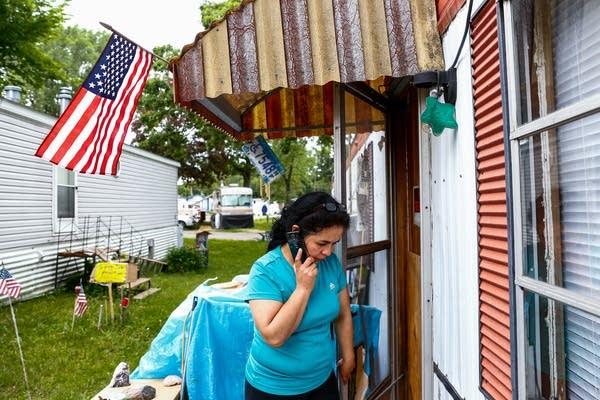One resident's $6 million, Hail Mary plan to save her mobile home park

Antonia Alvarez calls one of her neighbors after knocking on his door last week. She has rallied her neighbors in an effort to form a co-op and buy the park.
Evan Frost | MPR News
Go Deeper.
Create an account or log in to save stories.
Like this?
Thanks for liking this story! We have added it to a list of your favorite stories.


